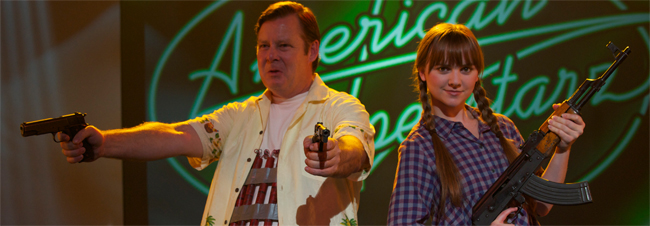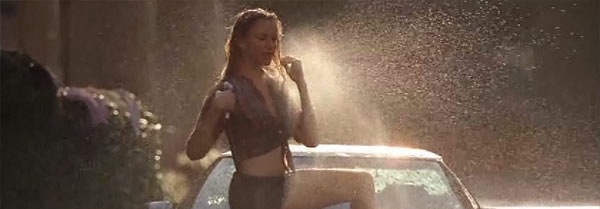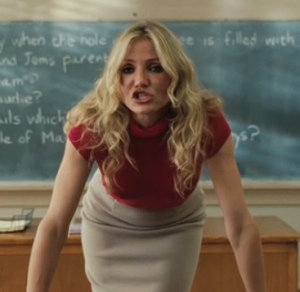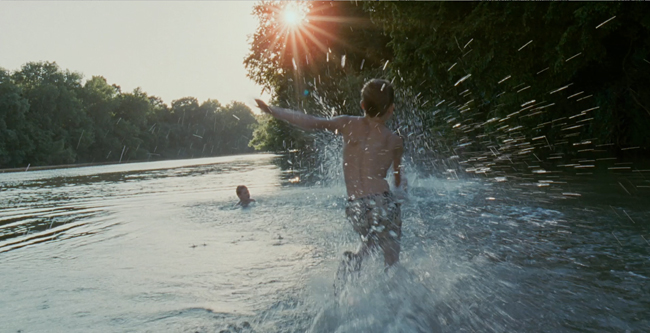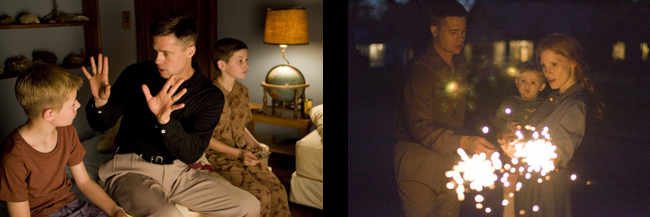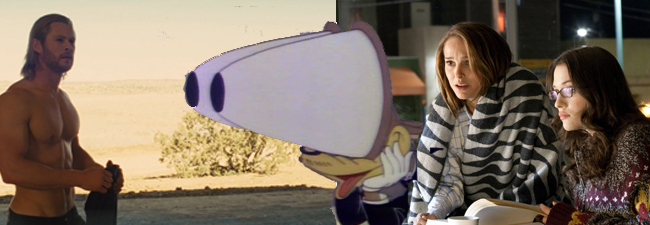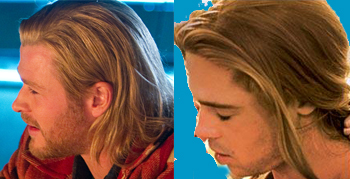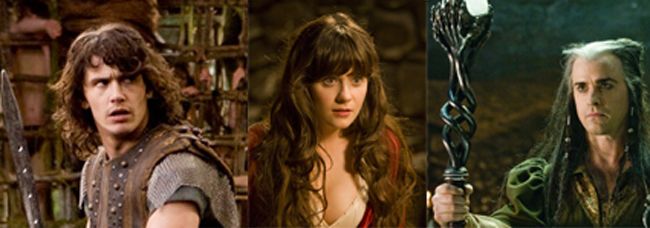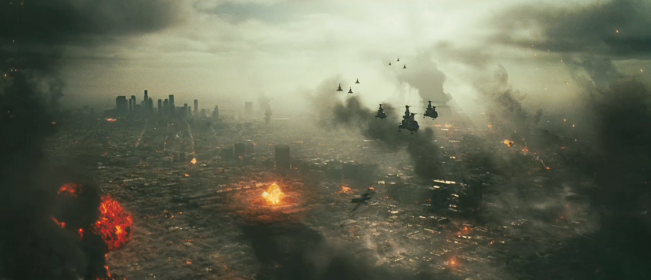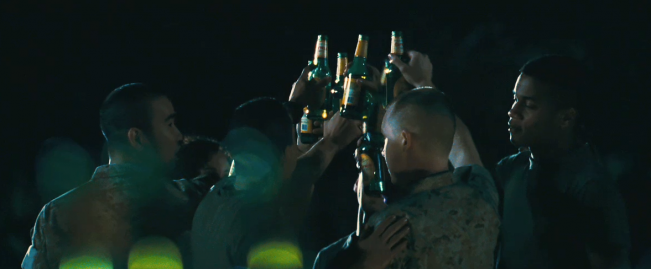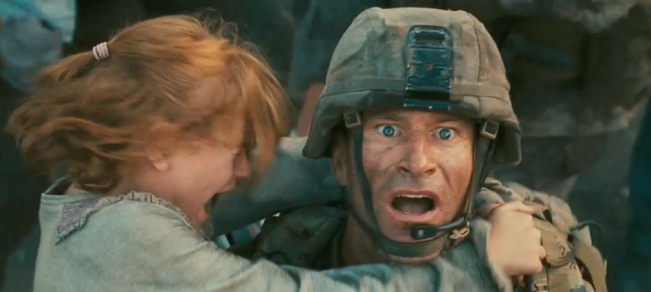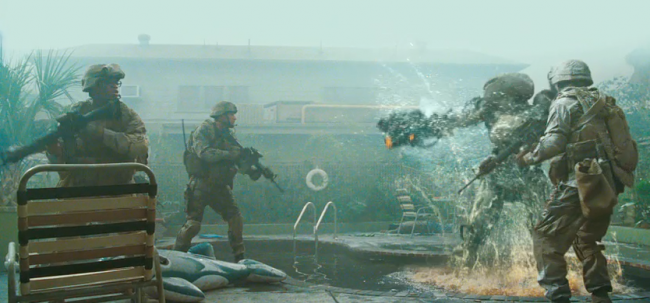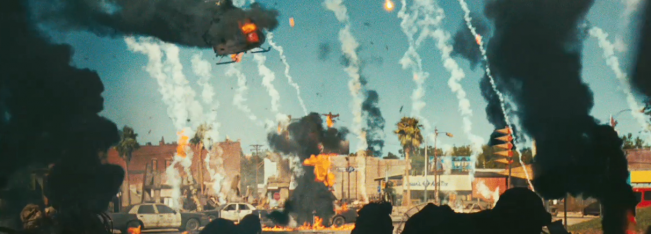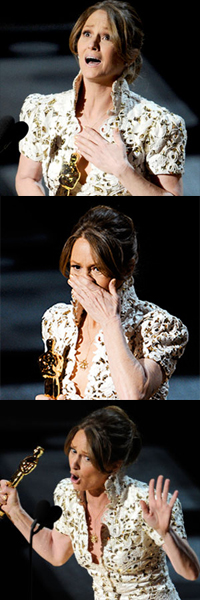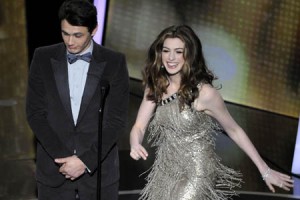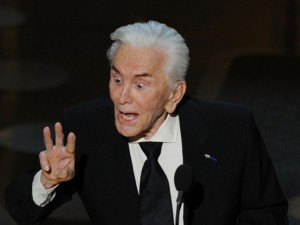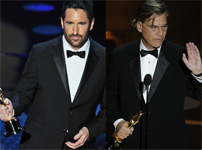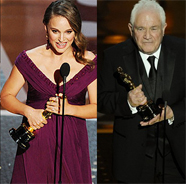
When you’re young, you want everyone to talk to you – your parents, your dog, your teddy bear, your action figures. When you’re older, you want everyone to shut up. “Family Guy” creator Seth MacFarlane brilliantly taps into this evolution with Ted, a movie he cowrote and directed about a sweet, lovable talking teddy bear that grows up to become a wise-cracking, bong-toking slacker. Just as Ted is John Bennet’s (Mark Wahlberg) ideal friend as a kid, keeping him safe from loneliness and thunderstorms, he’s also his ideal friend as an adult, keeping him safe from boring jobs and tedious girlfriends. It’s only when John decides (reluctantly) that it’s time to grow up that the trouble begins.
As you might expect for a movie with a premise this fantastic, the first few minutes of Ted are a pure delight. When John introduces his talking teddy bear to his parents, they react with abject horror, mom leaping up on the counter and dad screeching “Call the cops!” Soon after, though, the world embraces Ted as a Christmas miracle, and Ted is hitting the late night circuit. Needless to say, Ted’s 15 minutes don’t last more than, um, 15 minutes. Or, as a Stewie-alike voiceover explains, “No matter how big a scratch you make in this world, whether you’re Cory Feldman, Frankie Muniz, Justin Bieber, or a talking teddy bear, eventually, nobody gives a shit.”
Ted adjusts to adulthood the way many former child stars do, by planting himself on the couch and firing up the bong with clock-like precision. But after four years with his girlfriend, Lori (Mila Kunis), John starts to think it might be time to settle down. Sadly, that means kicking his best buddy out of the house forever. That’s not an easy choice, since Ted shares John’s love of rapid-fire stoner banter and the delectably cheesy 1980 movie Flash Gordon. Lori, on the other hand, has no discernible personality. She works at a posh publicity firm alongside a gaggle of dull, pretty women under the tutelage of a jerk who hits on her around the clock. Kunis sports the same saucer-eyed exasperation, framed by flat-ironed hair and caked-on black mascara, throughout the entire movie. Yes, Kunis is capable of much, much more, but her lines may as well have been lifted from a Katy Perry song (“I really don’t care as long as we’re together” “I just want you to know that I love you”) In fact, Lori’s (responsible, successful) life as a publicist makes John’s (irresponsible, disappointing) life as a rental car employee and inveterate stoner look absolutely rich and satisfying by comparison.
For all of their manchild afflictions, most of which we’ve seen before in the combined works of Adam Sandler, Seth Rogan and Jonah Hill, Ted and John are a million times more vivid and interesting than pretty much every woman in the movie, from Lori to her dim coworkers to a smart-mouthed grocery cashier who befriends Ted to the prostitutes Ted invites to Lori’s house (one of whom has a bowel movement on her floor). Ted and John actually have a sense of humor, for one thing. They have opinions and ideas and things to say. They converse with each other and show each other affection. John’s life with his fluffy manchild friend is dynamic and fun. His life with Lori is a big downer. And thanks to an uneven script, Mark Wahlberg has more chemistry with a CGI bear than he does with the real life actress hired to play his girlfriend.
Once this enormous gulf between Ted and Lori has been established, not only is it impossible to root for Lori, but the whole picture becomes skewed. Even with a major soft spot for teddy bears and man-children and bong hits and parties at which Flash Gordon star Sam Jones gives out lines of cocaine, the proceedings here alternate between lively, Get Him To The Greek-style romp and dull-as-mud, humorless romantic comedy, with the lively fun weighed down more and more by the leaden, awkwardly directed, badly scripted scenes in between. Even the movie’s score sounds like a temporary placeholder for something better to come. In other words, Seth MacFarlane shouldn’t have directed this movie, and he shouldn’t have worked with other TV comedy writers on the screenplay. He should’ve taken his formidable skill for great concepts and funny jokes, and collaborated with some filmmakers who were likely to set the bar much higher. And yes, MacFarlane is absolutely talented enough to deserve a great collaborator or two. Next time, he should put his ego aside and go out looking for directors and screenwriters whose skills and experience in film are on par with his in television.
Because, by the time Giovanni Ribsi’s creepy bear-napping dad and his overweight son come into play in the film’s climax, any last shred of originality is squelched. Ribsi’s hilarious gyrating to Tiffany videos offers one last laugh, but it can’t save the sinking feeling that this movie could’ve been truly great, a comedy classic even, if only MacFarlane had given as half as much care to the scenes without the bear in them. Instead, Ted is that very typical modern movie that takes an amazing concept, a bunch of really great jokes, and one or two unforgettable scenes, and packs them into a relentlessly bland plot featuring lackluster supporting characters and impossibly empty twists. If only MacFarlane had wished upon a falling star that his Star Wars action figures would turn into Charlie Kaufman and Spike Jonze, this promising mess could’ve been a comedic masterpiece.





